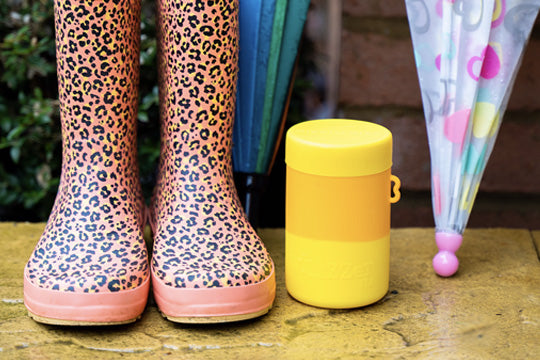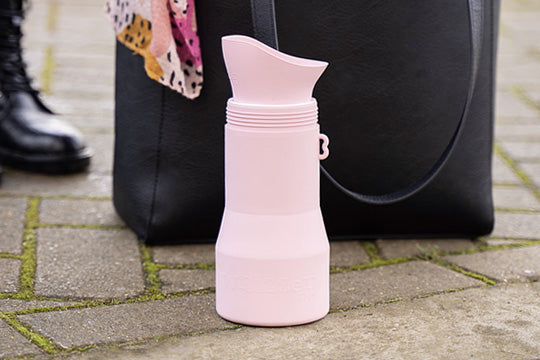The Step-by-Step guide to launching a bootstrapped product start-up business
I've often been asked by those in various stages of their start-up business journey where I started and the path I followed. It is going to be different for every Founder and business depending on things like the type of product or service you're selling, whether or not you have funding, the experience or support you have and even the type of personality traits you have can affect the journey.
Let's start with the basic questions
Do you have business idea?
If yes, make sure it's stripped back, streamlined and not overly complicated. You can always add to it once you're on your way. So many people find it hard to start because they've got such a complex vision or multi-faceted end-goal. This will only slow you down. Always start with tasks you feel confident about achieving. If you don't have a business idea, question why it is you want to start this journey because it's not for the faint-hearted. You will come up against so many challenges that you will need an extraordinary amount of passion and determination to overcome. If your heart is not in the business and you're not totally invested in it then it could all be a waste of time.
What is your 'Why?'
Your 'why' is what will drive you and stop you from giving up. It's your reason for starting and the thing that you will turn to in your darkest days to give you the strength to carry on. It needs to be powerful. Mine was my son. I wanted to show him that regardless of my disabilities and disadvantages I could follow my dream and make a better future for us by working hard and believing in myself.
Make a plan
Write a rough step-by-step guide to how you think you will go from the point you are currently at to the point where you feel you want to arrive at and would define as success. You don't need to know all the answers but visualising the end goal and giving yourself a template to add to will help keep you on track. Mine included the following which was then broken down into further tasks and all included significant research but hopefully this can help get you started.
| Register business on companies house |
| Set-up office forwarding address |
| Website Domain (e.g. GoDaddy) |
| Business Email Suite (Recommend Google Workspace which includes Google Drive, Gemini and more essentials) |
| Source Factory |
| Designing (can use Canva App if on a budget) |
| -Product Graphic/3D Image |
| -Company and product Logo |
| -Branding guidelines- colours, fonts, tagline, ethos etc |
| Funding plan (crowd-funding/investor/grants) |
| Sample Mould |
| Protecting your IP (patents, Trademarks etc) |
| Pitch Deck |
| Business Plan (I never got this far!) |
| Cash Flow forecast (I missed this step!) |
| Product Content (photos/images) |
| Set-up Social media |
| Batch create, build content plan |
| Business Bank Account (Revolut is good for international use) |
| PayPal account (customers may prefer this option) |
| Set-up Shopify Store |
| Marketing Plan (Google Digital Garage can help) |
| Price Structure (costs and margins) |
| PR list and Press release versions |
| Plan for Business basics (Book keeping App, Insurance, VAT) |
| Set-up Amazon store (optional nightmare!) |
| Reviews Platform (Trustpilot free version) |
| Google Business Profile |
| Overseas Shipping Forwarder |
| Warehouse/Fulfilment |
| UK business Shipping Account (e.g Royal Mail) |
What will you need to kick this plan off?
Is it funding, experience, workspace, something else or all of that and more. By knowing the fundamentals of what is required you can start to tackle how you will secure each element. For me, my main issue was funding. I knew I'd need approximately £12,000 for my mass production sample and final moulds and another £9,000 for the first production run based on the MOQ (minimum order quantity) and cost price. I'd also need a minimum of £2000 for my initial IP (Intellectual property; trademarks and Design Patents). Considering I had about £1000 saved I knew I'd need to look at funding options to even have a chance to making a start.
Although I was unsuccessful with the usual funding options, Great British Bank and other grant funding and business loans could be available to you depending on your circumstances.
What experience / learning / support will you need?
Do you know the basics of starting and running a business? Do you know how to set-up a website, register a business, apply for protection of your ideas, routes to funding, designing a product, qualifications needed to provide a service? There's lots to think about but you need to be prepared to learn as you go and/or have the network or team around you to cover all the bases needed.
Here is a list of the free government/ council funded courses I took part in:
Rebel Business school - build any type of business without a business plan. Great for starting from scratch and learning the basics then getting to know a community of people that you can go to for collaborative support. Lots of ongoing support and extra courses.
LIFT programme and OneTech - London based programmes with start-up school with links to lots of organisations and government funded resources.
Foundervine -Supporting Founders with diverse backgrounds. They offer programmes in collaboration with big names like WeWork, Sainsburys and Barclays Bank.
Capital Enterprise - For entrepreneurs looking to raise investment or accelerating early stage start-ups.
Business IP Centre British Library - A great resource of information with in person support and a range of courses to help you get started. They offer a place to visit or work from too.
Innovate UK Edge - Great support mentors available if you have an innovative product idea that require a specific type of support
Google Grow - One-to-One mentor support specially designed to get you started with your marketing and digital approach to getting you seen!
How will you reach your customers?
- It is a physical store? Have you monitored the location for long enough to know it's right for your audience and budget?
- Is it a B2B business that requires you to build a portfolio of customers from LinkedIn? How will you ensure that you can reach the right people and engage them.
- Is it product that you want to sell on Etsy? Have you followed others to see how they've done it? Is there a course you can take or social media page that can ensure you're setting it up and promoting yourself in the right places.
- Is it a Shopify store that you want to stock other peoples products on? How will you drive traffic there? How will you build your inventory and streamline your range to ensure you can retain customers?
- Is it an innovative product (like mine) where you know its needed but now need to find people and convince them to buy. Where will you store these products and how will you showcase them away from the website to encourage people to come and buy.
Have you tested your idea?
Don't rely on friends and family to tell you your idea is great. You need to test the market, that means real people. Do your research, see how many people there are in your target audience and make sure there is a product market fit. If your target audience isn't large enough to ensure your product will generate the revenue needed to keep your business thriving then it will be come a hobby. If you're okay with this then that's great but to make a successful business you need to know you will have steady growth opportunities that will land you at that end goal you wrote out earlier. If you have a large target audience but they don't have the disposable income needed to buy what you're selling then you'll have to re-think your offering as you could end up putting time and expense into a product that can't be used.
What is your marketing strategy?
It doesn't need to be any fancy but the more you know about your chosen method (TikTok, Facebook Ads, Google Trends, Press and PR etc) and have access to, the easier and quicker it will be to reach your customers and gain traction.
Google Digital Garage has a wealth of information and you can even sign-up for free mentor support here
If you're planning on using social media, it's a great tool for free exposure but you need to have a clear idea of how you will engage followers.
- Don't cut corners by buying followers or joining quick fix programmes that are sold to you with the promise of making your business an overnight success. There's no short-cuts, it will only waste valuable time and resources and can potentially go against you when it comes to trying to outsmart an algorithm.
- Be consistent and think outside of the box. Engaging content that makes people want to follow and support you will be far more powerful and long term. Build trust and stick to your content pillars. For example, don't go off topic because of a trending reel or something that you think is interesting. Find a schedule that you can stick to instead of posting for the sake of it.
- Don't bombard users with sales driven content, people buy from people so make sure you and your story are at the heart of what you do.
- Build a network and follow other businesses for ideas and inspiration but don't copy. Be yourself and stick with it.
- Be prepared to feel like you're not getting anywhere and no one is seeing your content. It can be soul destroying most of the time but it can all change in the blink of an eye or a viral piece of content.
- Stick to one or two platforms (e.g. TikTok and Instagram or LinkedIn and Facebook) by spreading yourself too thinly you wont be consistent and will become overwhelmed and not run any of them effectively. If you feel more confident on one then start there but figure out which platform your ideal customers hang out on. For example if your focus is B2B then TikTok might not be right and you need to focus on reaching out to people in LinkedIn. For every 1000 cold DMs on LinkedIn you may only get a few warm leads but by learning what works and adapting the tone or approach you can perfect your pitch.
- Utilise your talent or skill, if you're really knowledgable about a topic that relates to your business then weave it into the content to build up credibility.
This is a condensed guide which I will keep adding to but hopefully it gives you some encouragement and something to get your started with your very own start-up business.
Good luck!
Feel free to share your business and/or idea in the comments and/or show support to anyone who has already shared theirs.







